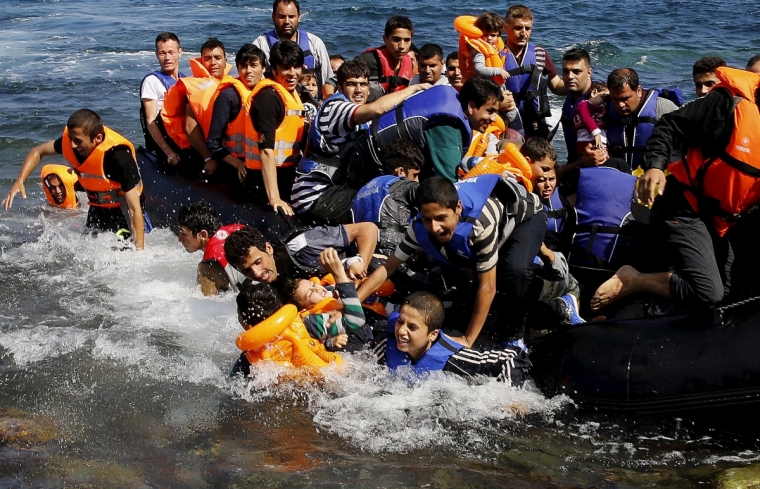UN Commissioner: Time running out for Christianity in the Middle East

NEW YORK (Christian Examiner) – United Nations High Commissioner for Refugees António Guterres told an audience at the National Press Club Oct. 27 that the world is in danger of experiencing "an amputation in the DNA of Christianity and in the DNA of the Middle East" if the world does not act soon.
Guterres, himself a Christian, said the world should be paying attention to the exodus of Christians from the region where Christianity developed, but also the plight of Syrian and Iraqi refugees fleeing the Islamic State.
"Allow me to speak here also as a Christian, which I probably shouldn't," Guterres said. "I must say that I'm worried about what's happening in the Middle East."
According to the UNHCR, nearly 60 million people have been forced to flee their homes since the wars in Iraq and Syria began, the largest number of displaced peoples since World War II.
"Displaced people worldwide are fleeing war, political oppression, and religious persecution. Syria's 4 million refugees and 7.5 million internally displaced people makes that nation the largest producer in the world of displaced persons," the U.S. Commission on International Religious Freedom, host of the event, added in a statement.
"People in my country and, of course, I cannot mention the United States because it's a young nation except for the populations that were here already long ago, but in my country (Portugal), people were still worshipping the trees and the rivers; and the Christians in the Middle East, in Alexandria, in Antioch, in Caesarea ... they were discussing whether the Holy Ghost was coming from the Father or from the Father and the Son," Guterres told the press club.
"I mean that is where Christianity was born, and to see these communities at the risk of being eradicated from that area is something I consider with horror. So independently of the importance of the resettlement program, I think that the international community must do everything possible to create the conditions for these communities to be able not to be religiously cleansed. I mean from that part of the world that would be to really do an amputation in the DNA of Christianity and in the DNA of the Middle East."
Guterres joins a growing list of world leaders to voice concern over the eradication of Christianity in the Middle East.
One of the notable voices is Pope Francis who told an audience of Chaldean bishops on Monday that the current state of affairs in the Middle East "undermines the vital Christian presence in the land which witnesses the beginning of the journey of the Patriarch Abraham, heard the voice of the prophets who called Israel to hope during the Exile, and saw the foundation of the first churches upon the blood of many martyrs."
"Today the situation in your lands of origin is gravely compromised by the fanatical hatred sown by terrorism, which continues to cause a great hemorrhage of faithful who leave the lands of their fathers, where they grew up firmly rooted in the furrow of tradition," the pontiff said.
England's Prince Charles has also spoken out in favor of aiding the Christian minority in the Middle East since November 2014, when he told a Catholic charity that "horrendous and heartbreaking events" in the region had brought the plight of Christians in the region to the forefront of the media. He made similar comments in at least two other public addresses early in 2015.
The White House has yet to address the plight of Christians in the Middle East, but that may be because President Barack Obama is waiting on Europe to solve the problem. That is something Guterres said he believes could be accomplished.
He said the countries of the European Union have a total population of 550 million. With a population that large, he said Europe should be able to accept 700,000 refugees.
"We are talking of a problem that could be managed ... but what happened was total chaos," Guterres said. Europe "has to [get] its act together, he said.